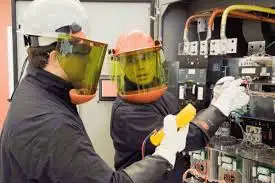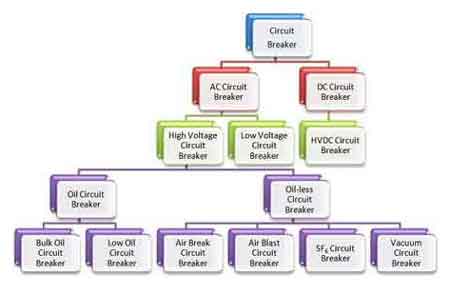Qualified Electrical Worker: Tasks Explained

NFPA 70e Training
Our customized live online or in‑person group training can be delivered to your staff at your location.

- Live Online
- 6 hours Instructor-led
- Group Training Available
Download Our OSHA FS3529 Fact Sheet – Lockout/Tagout Safety Procedures

- Learn how to disable machines and isolate energy sources safely
- Follow OSHA guidelines for developing energy control programs
- Protect workers with proper lockout devices and annual inspections
A qualified electrical worker is trained, authorized, and competent to perform tasks on energized equipment. Their expertise ensures compliance, electrical safety, risk assessment, and adherence to NFPA 70E standards in industrial and utility environments.
Who is a Qualified Electrical Worker?
A qualified electrical worker is an individual with the training, skills, and authorization to safely perform power related tasks on energized systems. A qualified electrical worker must understand the hazards of energized equipment, including arc flash, which can cause severe injuries without proper training and protective measures.
✅ Demonstrates safety knowledge and hazard risk assessment
✅ Meets OSHA and NFPA 70E training requirements
✅ Authorized to work on or near energized power equipment
It is someone who has received specific training and demonstrated the ability to safely work on or near energized electric power equipment. They can identify hazards, determine system voltage, and apply proper safety procedures in accordance with NFPA 70E standards.
Request a Free Training Quotation
Their qualifications, as per industry standards such as NFPA 70E, enable them to assess and handle potential hazards in the workplace. The importance of distinguishing between qualified and unqualified individuals is crucial for maintaining workplace safety, ensuring the proper handling of equipment, and minimizing risks. These workers are familiar with practices that reduce risk and follow established procedures for safe work. Their training equips them with an understanding of the safe operation of equipment, as well as how to mitigate hazards, including arc flash hazards and shock protection. Compliance requires training in safe work practices, such as those outlined in NFPA 70E arc flash training, ensuring workers recognize risks and apply correct procedures.
Sign Up for Electricity Forum’s Arc Flash Newsletter
Stay informed with our FREE Arc Flash Newsletter — get the latest news, breakthrough technologies, and expert insights, delivered straight to your inbox.
Moreover, a qualified person must receive training on identifying energized electric power equipment and installations, ensuring they can assess the risks and protect themselves and others. Their expertise extends to understanding how to apply an electrical safety program in day-to-day tasks. OSHA standards like 29 CFR 1910.147 lockout/tagout are essential for qualified workers to control hazardous energy before performing maintenance or repair.
What training is required to become a qualified electrical worker?
To become a qualified individual, one must undergo comprehensive training and education. This training program typically includes learning how to safely handle energized equipment and installations, assessing the risks associated with arc flash hazards, and determining the nominal voltage of electric power systems. Training also involves recognizing when special precautions, such as shock protection, are necessary.
A key component of this training is understanding work practices that promote safety. These include proper procedures for dealing with equipment that may pose a danger and ensuring that workers can manage these tasks with minimal risk of injury. The training also ensures that they can identify safety hazards, work within a safety program, and apply safe work practices. Importantly, this training must align with industry standards such as NFPA 70E. When performing risk assessments, workers often reference arc flash analysis to determine boundaries, PPE needs, and system voltage hazards.
What tasks can a qualified electrical worker perform?
A qualified worker is permitted to perform tasks that involve energized equipment and installations. This includes maintenance, repair, and installation of such systems. Their work also encompasses troubleshooting and identifying potential shock hazards in equipment. Tasks like these require not only technical expertise but also the ability to identify and mitigate risks, such as arc flash hazards.
In addition to working directly with energized systems, these workers also take part in assessing the condition of equipment and ensuring that safety measures are in place. Whether dealing with installations or handling routine maintenance, they are trained to follow safe work practices and handle a wide range of tasks associated with their expertise. A 40 cal arc flash suit is an example of PPE required for certain high-energy tasks, and qualified workers must know when such protection is mandated.
What is the difference between a qualified electrical worker and an unqualified worker?
The difference between a qualified worker and an unqualified one lies in their training and ability to assess and handle potential hazards. A qualified person has received safety training to identify hazards such as arc flash and knows how to apply protective measures. Their role often involves working directly with energized equipment, which is not permitted for unqualified workers.
Unqualified workers lack the necessary training and skills required to safely handle these tasks. They may assist in non-technical areas but are restricted from performing any duties that involve energized systems or potential hazards. The distinction is critical to ensuring the safety of workers in environments where the operation of equipment carries inherent risks.
Why is it important to have a qualified electrical worker perform tasks?
Ensuring that individuals handle tasks involving energized systems is essential for maintaining workplace safety. These individuals have demonstrated the skills and knowledge necessary to identify risks and apply the necessary precautions, thereby minimizing the likelihood of accidents or injuries. Their understanding of safe work practices, shock protection, and arc flash hazards enables them to perform their duties without endangering themselves or others.
Test Your Knowledge About Arc Flash!
Think you know Arc Flash? Take our quick, interactive quiz and test your knowledge in minutes.
- Instantly see your results and score
- Identify strengths and areas for improvement
- Challenge yourself on real-world electrical topics
Employing qualified workers also ensures compliance with safety standards, including NFPA 70E, which mandates that only individuals with the proper training should handle such tasks. This not only protects the workers but also ensures that equipment is properly maintained and operated, preventing costly downtime and accidents.
In summary, qualified workers play an essential role in maintaining safety standards in environments that involve energized equipment. Their expertise, training, and ability to manage risks are crucial in ensuring that all tasks are performed safely and efficiently. These workers follow strict safety protocols, as outlined by their training programs, to mitigate risks and handle hazardous situations with care.
Related Resources








